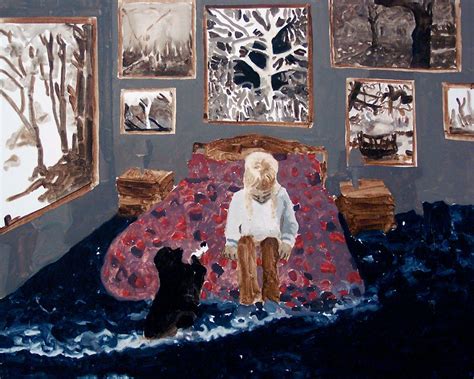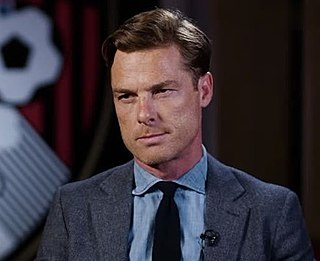A Quote by Nadia Comaneci
Scoring the first 10 in history was a big deal, but the fact that even an electronic scoreboard could not figure out how to put out a score, it made the story more historic.
Related Quotes
We've got some great big problems in our world. We have to figure out how to feed 10 billion people. Too many people can't access clean water, quality healthcare, and reasonable education. We have to figure out what to do about climate change, income inequality, and more. Innovators need to rise to the challenge!
Many people talk about me entering the history books as the first female in 22 years and what a big moment it was. And I'm very flattered that I managed to do something historic, but in all honesty I was out there for me as a racing driver and to show everybody what Susie Wolff is capable of not to put my name in the history books.
If I could get every single cancer genome sequence that has been sequenced; if I could ever put it in one repository, we have the capacity to do a million billion calculations per second. We'll be able to find out more in 10 minutes more than it would take 10 Nobel laureates 10 years to find out about the patterns of cancer and the cures for cancer.
My job is to cover the hell out of the story, very aggressively. The real place to be courageous if you're a news organization is where you put your people to cover the story. It's making sure that you have people going to Baghdad. It's making sure that you figure out how to cover the war in Afghanistan. While the journalist in me completely stands with them, the editor of the New York Times in me thinks my job is to figure out what the hell happened and cover the hell out of it, and that's more important than some symbolic drawing on the front page.
What's your story? It's all in the telling. Stories are compasses and architecture; we navigate by them, and to be without a story is to be lost in the vastness of world that spreads in all directions like arctic tundra or sea ice. To love someone is to put yourself in their place, we say, which is to put yourself in their story, or figure out how to tell yourself their story. Which means that a place is a story, and stories are geography, and empathy is first of all an act of imagination, a storyteller's art, and then a way of traveling from here to there.
That's such a big part of film scoring that people don't realize. There's a portion of film scoring that's writing the music, but a lot of it is how do you get along with the guy you're working with, how do you interpret what he wants? It's so subjective, you know? Your version of sad is probably different than my version of sad. It's my job to figure out what your vision of sad looks like.
Theologians will protest that the story of Abraham sacrificing Issac should not be taken as literal fact. And the appropriate response is twofold: first, many, many people even to this day, do take the whole of their Scripture to be literal fact, and they have a great deal of political power over the rest of us, especially in the United States and in the Islamic world. Second, if not of literal fact, how should we take the story? As an alagory? Then an alagory for what? Surely, nothing praiseworthy. As a moral lesson? But what kind of morals could one derive from this appalling story?
The point guard thing was I had to figure out how to score when I'm hot, and how to distribute and make sure everybody is happy. Because I can be happy scoring the ball. But when everybody isn't touching the ball, and we're not making the defense move, it's kind of pointless. So, I've got to find a way to keep everybody in the loop.
For people who are coming out of an oral tradition, it is very exciting to get into reading and writing and it is quite interesting how frequently people want to write their own story. Sometimes it is straight history - this is how we came about, how our town was created, a lot of that kind of effort, as soon as literacy came. The first thing you wanted to do was to put something down about who you are or how you are related to you neighbors. Then the next stage would be the stories, the cultural part of the story: this is the kind of world our ancestors made or aspired to.
I made the rules I figured I could be the one to break them. I thought I would write about xenophobia, a hatred of foreigners. After I stated writing the story there was not a foreigner to be had. I did not want to just stick one in there so I could get a title out of it since it seemed like cheating. I never figured out how I could get out of this dilemma so I just called it X and weaved X traits into the story.
For me, having a daughter made me much more efficient and productive. I would wake up in the morning trying to figure out how to organize my day so that I could get home. The phone calls with friends, the lunches out with colleagues - all of that got scrapped so that I could be as efficient and productive as possible.
I guess he'll have to figure out someday that he is supposed to have this dark side, that it is part of what it means to be human, to have the darkness just as much as the light- that in fact the dark parts make the light visible; without them, the light would disappear. But I guess he has to figure other stuff out first, like how to keep his neck from flopping all over the place and how to sit up.






































